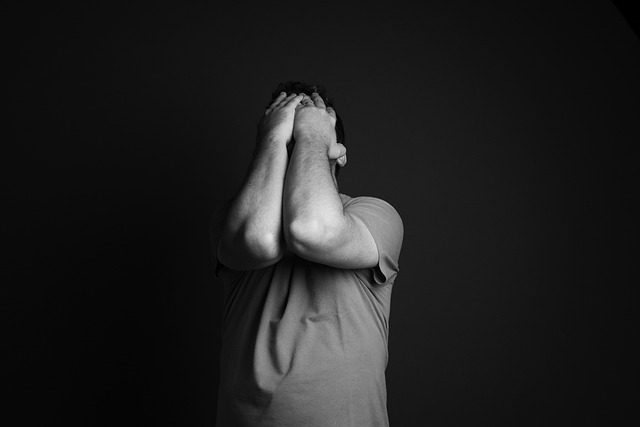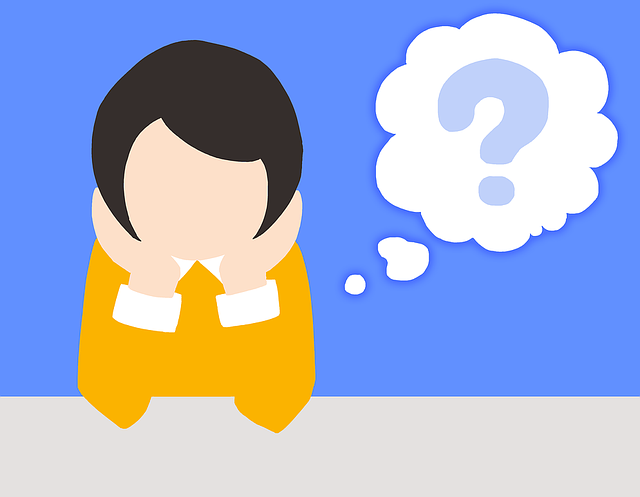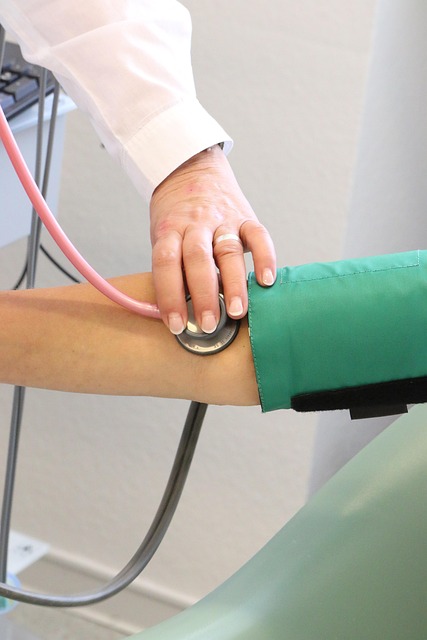Social Anxiety Disorder (SAD) significantly impacts individuals' lives, causing isolation and low self-esteem due to fear of social situations. Effective anxiety treatment includes various therapeutic approaches like Cognitive Behavioral Therapy (CBT), Exposure Therapy, and Mindfulness-Based Therapies, which challenge negative thought patterns, gradually expose patients to fears, and promote present-moment awareness. CBT helps set achievable goals for real-life interactions, while Exposure Therapy safely escalates challenges through repetition and positive reinforcement. Mindfulness techniques regulate stress responses and enhance overall well-being. Group therapy offers community support, and medication like SSRIs and beta-blockers can alleviate symptoms when combined with therapy. Lifestyle changes and self-care strategies, including exercise, yoga, and proper sleep, also significantly contribute to anxiety treatment.
Social anxiety, characterized by intense fear and avoidance of social situations, affects millions. This comprehensive guide explores effective therapeutic services designed to help individuals overcome their anxiety. From understanding the disorder’s symptoms and impact to exploring evidence-based approaches like CBT, exposure therapy, mindfulness, group therapy, medication options, and self-care strategies, discover tailored paths to managing and reducing social anxiety. Access these resources to reclaim your life and embrace social interactions with confidence.
Understanding Social Anxiety Disorder: Symptoms and Impact

Social Anxiety Disorder, or SAD, is a prevalent mental health condition characterized by an intense fear and avoidance of social situations due to concerns about embarrassment, judgment, or negative evaluation from others. Those affected often experience a range of symptoms that significantly impact their daily lives. These can include excessive worrying before social events, fear of being watched or judged, difficulty making friends or maintaining relationships, and physical manifestations such as rapid heartbeat, sweating, trembling, or blushing.
The impact of SAD extends beyond the individual, affecting various aspects of life. It may lead to avoidance of school, work, or social gatherings, resulting in isolation and loneliness. Individuals with SAD often struggle with low self-esteem, depression, and even panic attacks triggered by social situations. Effective anxiety treatment is crucial for managing these symptoms, improving quality of life, and helping individuals regain control over their lives.
Therapeutic Approaches for Overcoming Social Anxiety

Social anxiety, a condition characterized by intense fear and avoidance of social situations, can be effectively managed through various therapeutic approaches. Cognitive Behavioral Therapy (CBT) is one of the most widely recognized and successful methods for treating social anxiety. CBT focuses on identifying and challenging negative thought patterns and behaviors that contribute to anxiety, teaching individuals coping strategies to navigate social interactions with more confidence.
Another powerful approach is Exposure Therapy, which involves gradually exposing individuals to feared social situations in a safe environment. By facing their fears in a controlled setting, individuals can learn to manage their anxiety responses and build resilience over time. Additionally, Mindfulness-Based Therapies have gained popularity for their ability to help individuals stay present and non-judgmentally aware during social interactions, reducing the impact of anxious thoughts. These therapeutic methods offer personalized strategies to empower individuals with tools to overcome social anxiety and lead more fulfilling lives.
Cognitive Behavioral Therapy (CBT): A Step-by-Step Guide

Cognitive Behavioral Therapy (CBT) is a structured and evidence-based approach to treating social anxiety disorders. The process involves several steps, designed to help individuals identify and change negative thought patterns and behaviors that contribute to their anxiety.
Initially, CBT therapists assist clients in understanding their anxious thoughts and the associated physical sensations. This is followed by challenging those thoughts, replacing them with more realistic and positive ones. Through gradual exposure to feared social situations, individuals learn coping strategies and build confidence. The therapy encourages setting achievable goals, starting from less intimidating scenarios and progressively moving towards more complex social interactions, ultimately helping clients manage their anxiety effectively in real-life settings.
Exposure Therapy: Confronting Fears in a Safe Environment

Exposure therapy is a powerful technique within the realm of social anxiety therapeutic services, offering individuals a safe and controlled environment to confront their fears. This approach involves gradually exposing clients to socially threatening situations, allowing them to face their anxiety head-on. By doing so, patients learn to manage their responses, realizing that their worst-case scenarios rarely come to pass. The therapy provides a supportive setting where individuals can safely practice social interactions, thereby building confidence and reducing anxiety over time.
This methodical process begins with identifying specific fears and gradually escalating the level of challenge, from less intimidating scenarios to more complex social situations. Through repetition and positive reinforcement, clients develop coping strategies that they can utilize outside the therapeutic environment. As a result, exposure therapy empowers individuals to take control, enabling them to engage in social settings with newfound ease and confidence, thus becoming an effective component of anxiety treatment.
Mindfulness and Meditation Techniques for Anxiety Relief

Mindfulness and meditation have emerged as powerful tools within the realm of anxiety treatment. These practices encourage individuals to focus on the present moment, observing their thoughts and feelings without judgment. By cultivating a non-reactive mindset, one can learn to detach from anxious thoughts, reducing their intensity and impact.
Meditation techniques, such as deep breathing exercises and guided visualizations, help regulate the body’s response to stress. Regular practice allows individuals to gain better control over their emotional reactions, fostering a sense of calm and resilience. This proactive approach to anxiety relief empowers those seeking anxiety treatment to manage their symptoms effectively and enhance overall well-being.
Group Therapy Sessions: Building Supportive Communities

Group therapy sessions play a pivotal role in the journey towards overcoming social anxiety. By bringing together individuals facing similar challenges, these sessions foster a supportive community where members can share their experiences, offer encouragement, and learn from one another. The group dynamic allows for a sense of belonging, reducing feelings of isolation often associated with anxiety disorders.
In a controlled and safe environment, participants engage in open discussions, participate in various therapeutic activities, and develop coping strategies collectively. This collaborative approach not only enhances the effectiveness of anxiety treatment but also empowers individuals to face social interactions with newfound confidence. The support and understanding within the group can be transformative, encouraging personal growth and improved overall well-being.
Medication Options for Managing Social Anxiety

Medication can play a significant role in managing social anxiety, offering a way to alleviate symptoms and improve overall well-being. Selective serotonin reuptake inhibitors (SSRIs) are commonly prescribed for social anxiety disorders as they help increase serotonin levels in the brain, enhancing mood and reducing feelings of worry and fear. Other types of medications, such as beta-blockers, can be used on a short-term basis to manage specific symptoms like rapid heartbeat or trembling during anxious situations.
While medication is a valuable tool, it’s often most effective when combined with therapy. It’s important to note that not everyone responds to medication in the same way, and finding the right balance may involve trial and error. Regular check-ins with a healthcare provider can help manage side effects and adjust dosages as needed, ensuring an optimal approach to anxiety treatment.
Lifestyle Changes and Self-Care Strategies for Better Mental Health

In addition to professional therapy, making lifestyle changes and adopting self-care strategies can significantly enhance anxiety treatment. Regular exercise, for instance, has been shown to reduce symptoms of anxiety by promoting the release of endorphins, which act as natural mood lifters. Incorporating activities like yoga or meditation into daily routines can also foster mental clarity and calmness.
Proper nutrition and adequate sleep are equally important. Balanced diets rich in nutrients support brain health and overall well-being, while consistent sleep patterns help regulate emotions and reduce stress levels. Furthermore, mindfulness practices encourage individuals to focus on the present moment, thereby easing anxious thoughts and fostering a sense of groundedness. These self-care strategies complement therapeutic interventions, contributing to holistic anxiety treatment and improved mental health outcomes.
